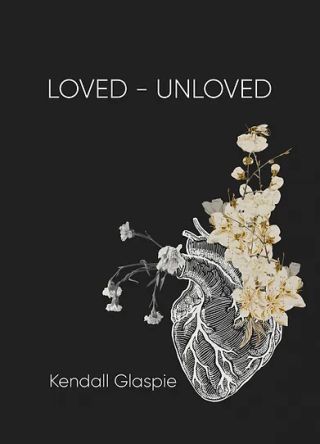Relationships
The Power of Poetry
Personal Perspective: A reading by Black authors reminded me how essential art can be.
Posted May 12, 2023 Reviewed by Tyler Woods
Key points
- “Loved – Unloved” chronicles journeys in love and identity across developmental stages through chapters.
- Poems evoke the emergence of personal truths along with their modifications over time.
- Glaspie illustrates human consciousness moving among universal, group, and personal levels of meaning.
- The author uses words and images to create music. Sounds convey his highest truths.

Invited by an author-friend who was participating, I recently attended a program of readings by local African-American writers. As the audience in the library expanded, I noticed that I was among a minority of both white and elderly supporters. After years of university teaching, helping or visiting in the classrooms of granddaughters who attended an elementary school where they were among a white minority, volunteering with the American Red Cross and the New York State Surrogate Decision-Making Council, and working as a psychologist in inner-city settings, I was comfortable amid diversity of many sorts and curious about what I might learn from these authors. I settled into my seat as the moderator introduced the first participant, a handsome and passionate man.
Kendall Glaspie greeted us, and then he began to read from his five-chapter book of poems, Loved – Unloved: A Black Man's Puzzle. I sat mesmerized as the sounds and meanings of his words washed over me. I felt familiar music hitting ancient beloved chords deep in my soul. Suddenly I reached back 60 years to a part of me, a college sophomore, who first discovered Lawrence Ferlinghetti and “A Coney Island of the Mind”. The moment felt magical.
I was in awe of the way Glaspie wove together words and images and, in reading them aloud, created music that reached far deeper within me than anything I had ever heard, seen, or read about the African American experience. Even more, he portrayed the male experience, the complex nature of falling in love, being in love, allowing love to reach the soul, and observing the ways in which it expands one’s identity. Like Ferlinghetti, his work was meant to be set to voice.
After the program, a bit overwhelmed by Kendall’s reading from the slim volume, I stood in his author-line to speak with him, purchase a copy, and ask if I could write about my experience while listening to him. He generously granted permission. I had a busy week coming up and had to wait a full nine days until I had a block of time large enough that I could devote myself to reading the poems, giving them the attention that I knew they deserved.

Kendall’s book did not disappoint. He sees it as “a collection of poems that explore complex dynamics that influence the identity and psyche of black men in North America. It investigates what the construct of love means to us as individuals and as a collective.” Although I am neither black nor a man—nor am I even of his generation—I have spent my personal and professional life studying, discovering, and witnessing the impact of personal and group trauma, its lingering legacy, and the healing power of love. I identified strongly with both the universal and much in the personal that he described. The depth of his grasp of the journey toward wholeness, embracing all parts of our selves but allowing our choices of action to be based on consciousness, left me mesmerized.
Bessell van der Kolk writes in The Body Keeps the Score of the oversimplification of a DSM-defined approach to trauma. Ruth Buczynski, at the National Institute for the Clinical Application of Behavioral Medicine, offers a formidable roster of trauma experts who contribute to updated online courses in trauma and its treatment. Richard “Dick” Schwartz runs a range of programs on internal family systems and how appreciation of them can contribute to healing. Quite recently, he has teamed up with Thomas Hübl, an Israeli anthropologist, to teach “Connect. Restore. Reclaim”, an online program that combines Schwartz’s internal family Ssstems perspective with Hübl’s work on healing ancient, legacy, or collective trauma.
These professional approaches to finding wholeness and hope offer many therapies of value and paths towards integrity. But, in the end, we must “walk the walk” as well as “talk the talk”. Kendall Glaspie has continued to do the work and powerfully share his insights in his poems. He shows us his testimonial, rather than telling us. As he concludes, “This book is evidence that my faith is stronger than circumstance. It’s a testament that trauma can become a triumph. It’s the revelation that my truth can coexist with yours. That our words have meaning beyond their intent. That I am Loved-Unloved and a master of puzzles.”
Copyright 2023 Roni Beth Tower
References
Glaspie, Kendall (2022) Loved – Unloved: A Black Man’s Puzzle. Independently published. https://www.amazon.com/Loved-Unloved-Black-Mans-Puzzle/dp/B09PW8LBK8
Van der Kolk, B. (2015). The Body Keeps the Score: Brain, Mind and Body in the Healing of Trauma. Penguin Publishing Group.


